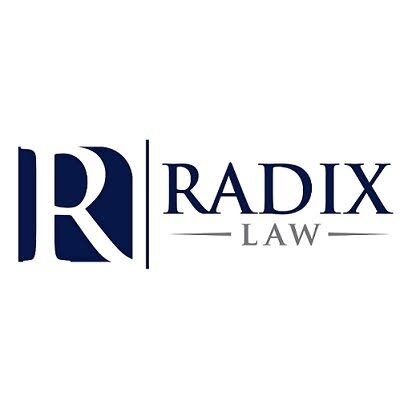Best Tax Increment Financing Lawyers in United States
Share your needs with us, get contacted by law firms.
Free. Takes 2 min.
Or refine your search by selecting a city:
List of the best lawyers in United States
About Tax Increment Financing Law in United States
Tax Increment Financing (TIF) is a public financing method used as a subsidy for redevelopment, infrastructure, and other community-improvement projects in many countries, including the United States. TIF is designed to encourage development in areas where it might not otherwise occur naturally. The basic premise involves financing the public costs of improvements with future property tax revenue resulting from the increase in property values generated by the improvements themselves. TIF districts are commonly established by local municipal governments and can significantly impact local economies and tax policies.
Why You May Need a Lawyer
There are several situations where you might need legal advice regarding TIF:
- If you're a developer or investor looking to benefit from TIF and need to understand the complex legal framework involved.
- For property owners within a TIF district who want to understand the impact on property taxes and property value.
- If you're a public official or local government interested in setting up a TIF district and require guidance on the legal processes involved.
- If you're part of a community advocacy group assessing the implications of existing or proposed TIF districts.
- If disputes arise regarding the allocation and implementation of TIF funds.
Local Laws Overview
TIF laws vary significantly across different states and municipalities in the United States. However, some common elements found in local TIF statutes include:
- Eligibility Criteria: Most laws define what areas can be considered for TIF, typically focusing on economically distressed or 'blighted' areas.
- Project Plans: A detailed plan must be approved, often requiring feasibility studies and public hearings.
- Increment Funding: Only the increase in property taxes (the increment) from the project can be used for TIF purposes and not existing baseline revenue.
- Duration Limits: Most TIF districts have a set duration, often between 15-30 years.
- Oversight and Compliance: Local laws require ongoing oversight and annual reporting to ensure transparency and accountability in TIF projects.
Frequently Asked Questions
What is the main purpose of TIF?
TIF is designed to stimulate private investment in disadvantaged areas, leading to economic development, job creation, and increased property values without imposing new taxes.
How does a TIF district impact property taxes?
Within a TIF district, property tax rates do not change, but the increment generated from increased property values is used to finance public improvements.
Who can establish a TIF district?
TIF districts are typically established by local municipal governments, such as city councils or county boards.
Can TIF funds be used for any type of development?
No, TIF funds are generally allocated for public infrastructure and improvement projects like roads, parks, and utilities that support the redevelopment efforts.
What happens when a TIF district expires?
Once expired, the increment revenue generated in the district is distributed to the local taxing bodies as part of the regular tax base.
Are there risks associated with TIF?
Yes, potential risks include mismanagement, insufficient tax increments, and increased municipal debt if projects do not generate expected returns.
How does TIF impact local school districts?
TIF can impact school funding as future property tax revenues may be redirected to finance development projects instead of supporting local schools.
Can property owners within a TIF district oppose its establishment?
Yes, often property owners have opportunities to voice their concerns during public hearings before the establishment of a TIF district.
What transparency measures are in place for TIF projects?
Many regions require reports, public meetings, and audits to ensure accountability in TIF district management and fund allocation.
Is public participation required in TIF decision-making?
Yes, public participation is typically required, and local authorities often hold public hearings for community input before approving TIF plans.
Additional Resources
For more information regarding TIF, the following resources may be helpful:
- The U.S. Department of Housing and Urban Development for policy guidance on urban development.
- The National Association of Counties provides resources on TIF's impact on local governments.
- The Council of Development Finance Agencies, which offers detailed analyses and publications on TIF practices and laws.
- State economic development offices that often have specifics on TIF implementation and success stories.
Next Steps
If you seek legal assistance in navigating TIF, consider taking the following steps:
- Research Qualified Attorneys: Look for lawyers specializing in municipal law, real estate development, or tax law with experience in TIF cases.
- Schedule Consultations: Meet with multiple attorneys to discuss your situation and evaluate their expertise and approach.
- Collect Relevant Documents: Gather all documentation related to the TIF district or project, including agreements, financial projections, and correspondence.
- Understand Legal Fees: Clarify the legal costs upfront, including retainer fees, hourly rates, or contingency arrangements.
- Engage in Ongoing Communication: Maintain regular contact with your lawyer to stay informed about your case and any legal developments.
Lawzana helps you find the best lawyers and law firms in United States through a curated and pre-screened list of qualified legal professionals. Our platform offers rankings and detailed profiles of attorneys and law firms, allowing you to compare based on practice areas, including Tax Increment Financing, experience, and client feedback.
Each profile includes a description of the firm's areas of practice, client reviews, team members and partners, year of establishment, spoken languages, office locations, contact information, social media presence, and any published articles or resources. Most firms on our platform speak English and are experienced in both local and international legal matters.
Get a quote from top-rated law firms in United States — quickly, securely, and without unnecessary hassle.
Disclaimer:
The information provided on this page is for general informational purposes only and does not constitute legal advice. While we strive to ensure the accuracy and relevance of the content, legal information may change over time, and interpretations of the law can vary. You should always consult with a qualified legal professional for advice specific to your situation.
We disclaim all liability for actions taken or not taken based on the content of this page. If you believe any information is incorrect or outdated, please contact us, and we will review and update it where appropriate.
Browse tax increment financing law firms by state in United States
Refine your search by selecting a state.

















